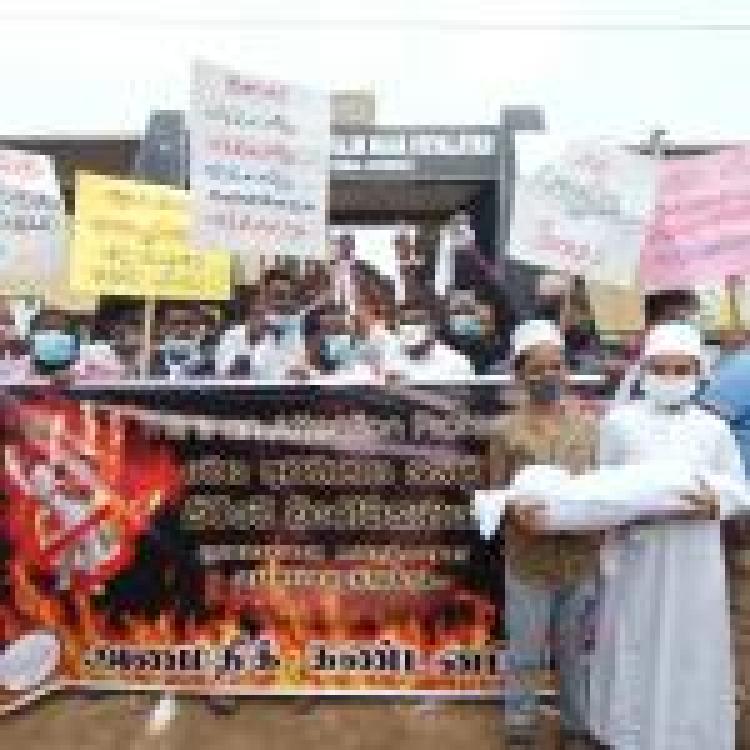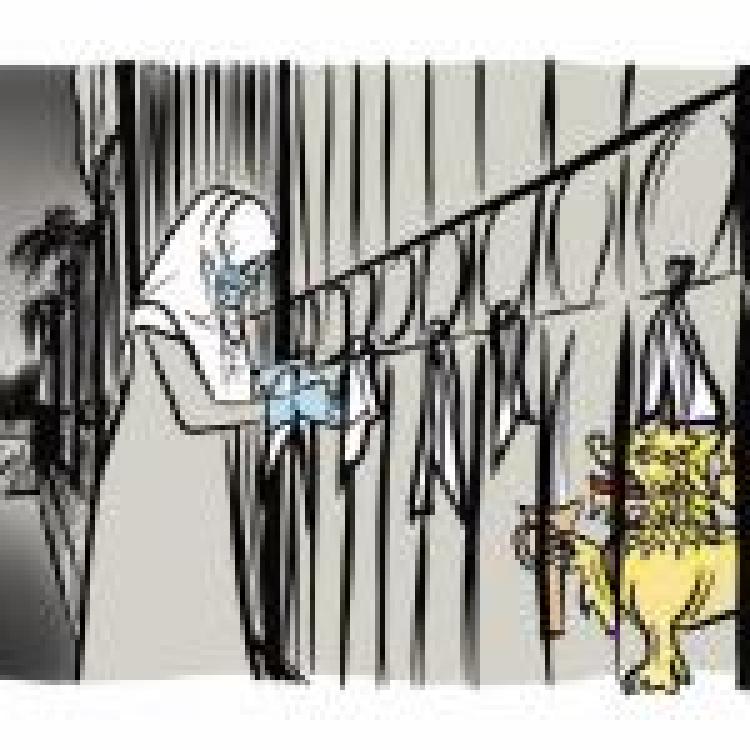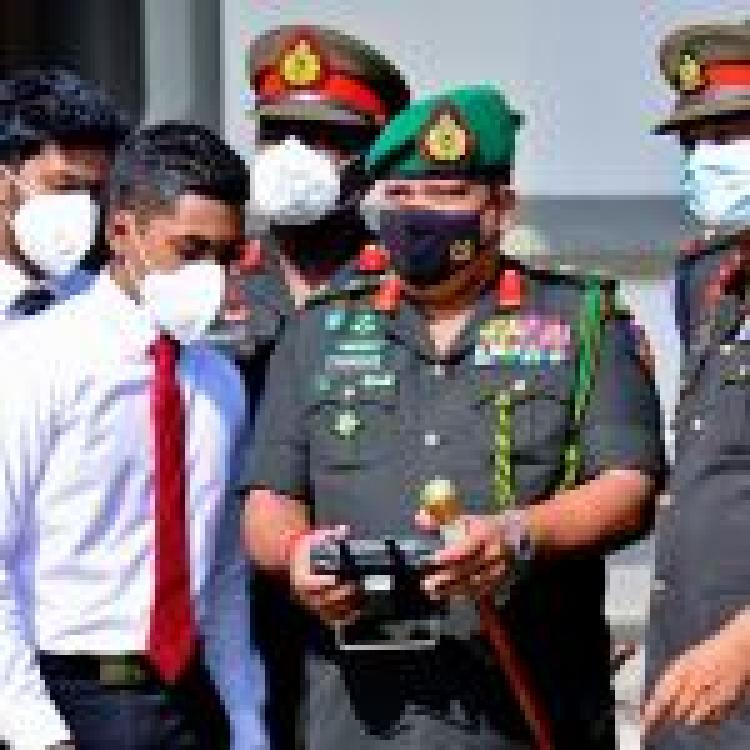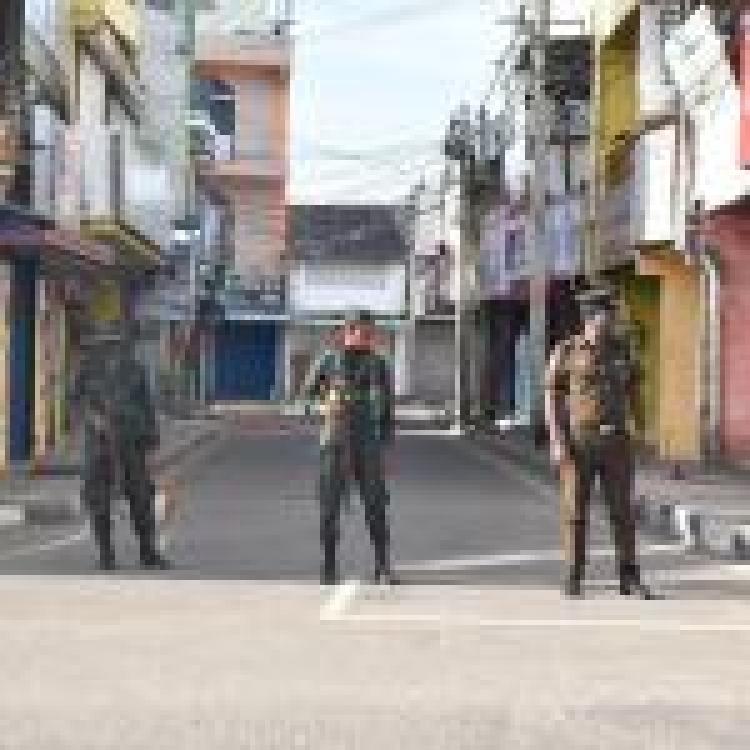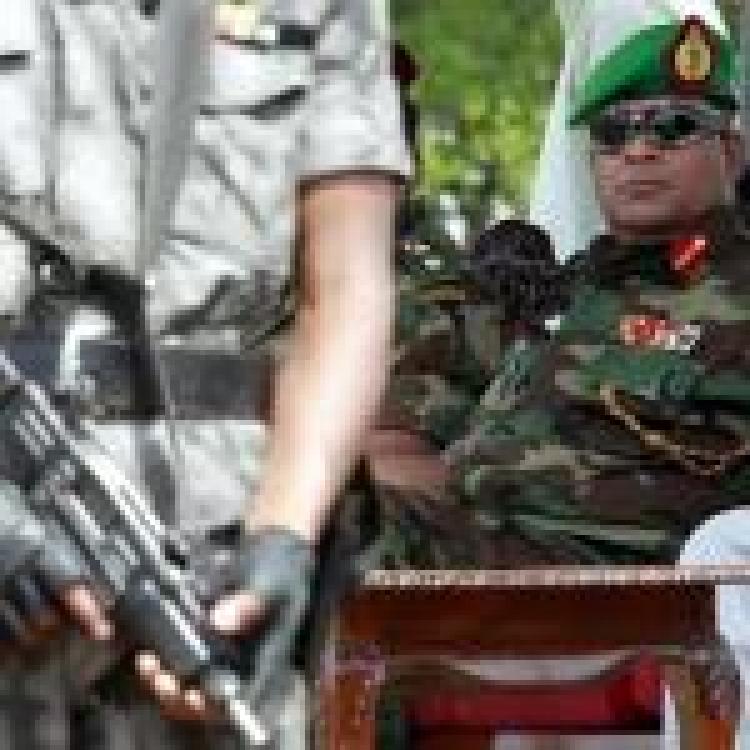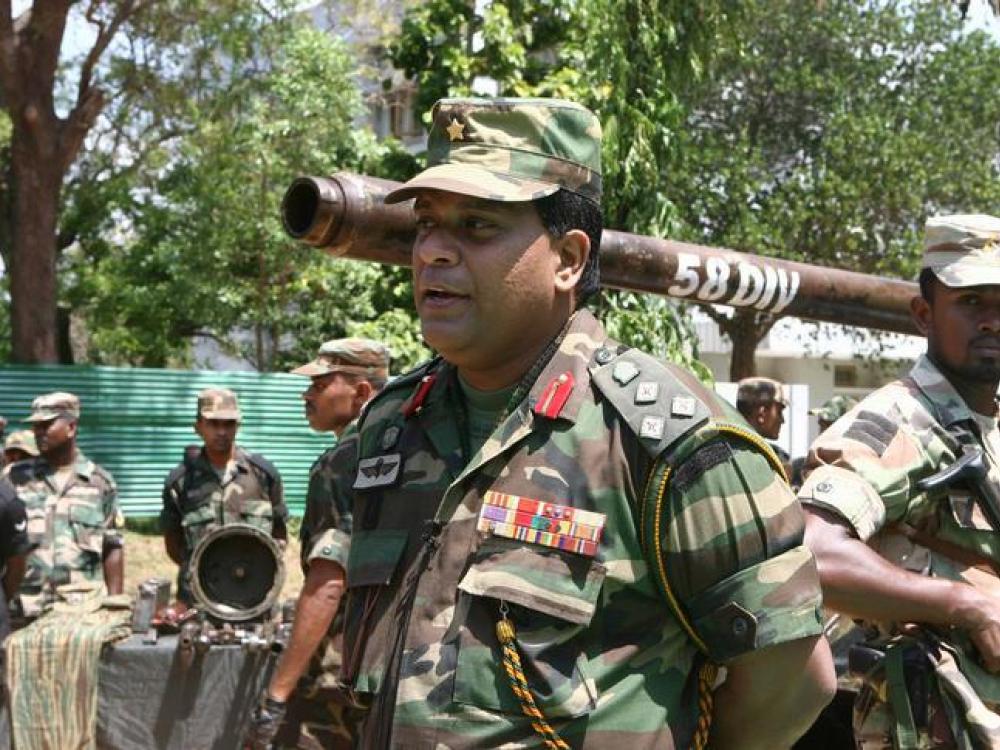
Accused war criminal Shavendra Silva
Sri Lankan authorities held a discussion with the world health organisation (WHO) to discuss future imports of coronavirus vaccines.
The discussion was attended by Lalith Weeratunga, the Presidents Chief advisor, the director-general of health service, Dr Asela Gunawardena and accused war criminal, and head of Sri Lanka's army, Shavendra Silva.
Silva said they would discuss importing the Pfizer vaccines from the USA, Oxford/AstraZeneca from the UK or the Sputnik V vaccine from Russia. WHO has pledged to provide 20% of Sri Lanka’s population with COVID-19 vaccinations.
Sri Lanka’s heavily militarised COVID-19 response
Alleged war criminal, Shavendra Silva, is the head of the National Operation Centre for Prevention of COVID-19 Outbreak (NOCPCO) which was created to prevent the spread of the disease. This followed a pattern of the Rajapaksa government of military appointments to key public sector positions, including to the Ministry of Health, the Director-General of the Disaster Management Centre and the Director-General of the Customs Department.
Earlier this year Boram Jang, Legal Advisor at the International Commission of Jurists Asia & the Pacific Programme raised concerns about the limited oversight over Sri Lankas Military.
“Sri Lanka’s involvement of the military at every level, with limited parliamentary and civilian oversight, raises serious human rights and rule of law concerns”
“Having the military to oversee public health policy and to act as the State’s first responders also normalises military occupation, exacerbates the existing ethnic divides, and further deteriorates human rights in Sri Lanka”, he added.
Shavendra Silva is currently banned from travelling to the US for his role in overseeing war crimes and human rights abuses during the end of the armed conflict, which saw thousands of Tamil civilians killed.

